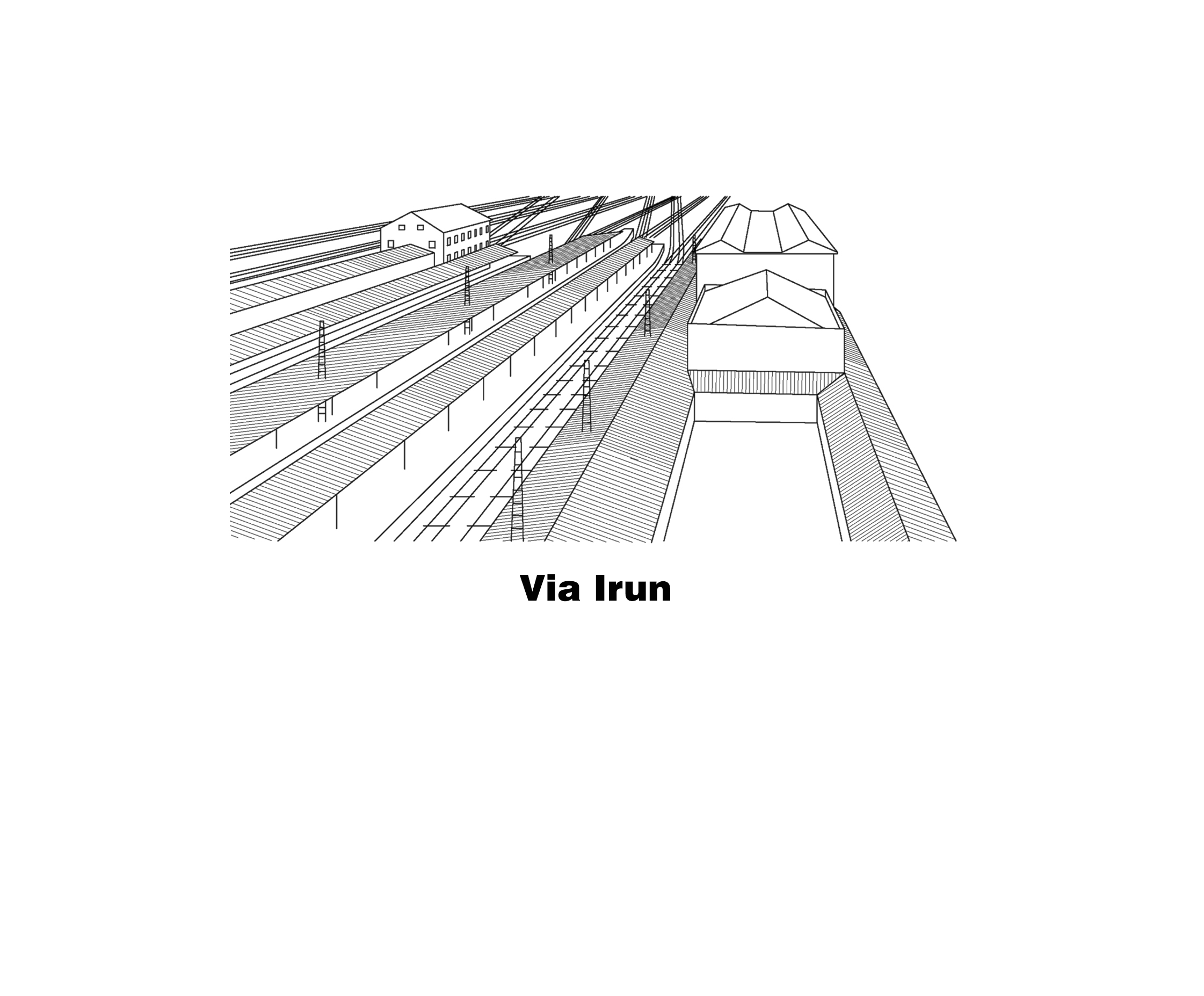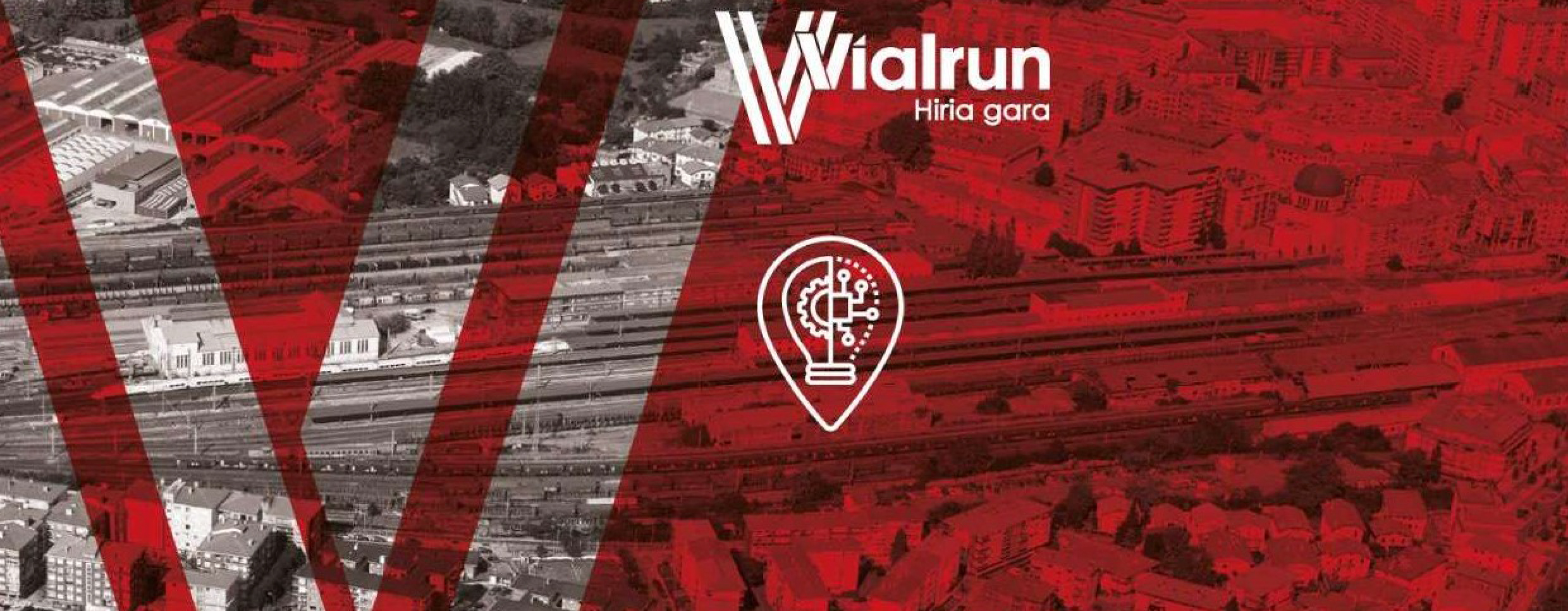CONTEXT AND OBJECTIVE
Irun is the border town between Spanish and French Basque Country. Irun is an important rail hub, where the French rail network connects to the Spanish rail network with wider tracks. The rail infrastructure is very dominant in the centre of Irun. Optimization of the infrastructure will free up 34 ha of railway site for a new destination. This project will give Irun a new face and has immense opportunity. The city council therefore wants to include citizens and all stakeholders in the project. The board opted for a master plan approach to frame the project with the right governance.
This participation project is part of the exploratory phase, to establish the goals and design criteria for the new master plan, with as a starting point:
- Reduce the footprint of the rail infrastructure
- Completely renew the station
- Revise the rail trajectory
- A mixed use of the space with a service centre, economic activity and housing
APPROACH
With the participation we focus on 3 streams:
- Intensive INFORMATION about the project, the process and the why of the participation
- TESTING alternative goals with different perspectives
- Building & visualizing CONSENSUS about objectives, beyond the technical content.
In the preparation phase, we mapped stakeholders and challenges, and involved politics, administration and associations in designing an agreed upon process.
To make the whole project comprehensible for citizens and stakeholders, we worked out 2 hypothetical scenarios and presented those scenarios from 10 perspectives (eg mobility, economy, housing, heritage, greenery, etc.).
For INFORMING there was a grand opening, exhibitions, information markets, and a major media campaign.
For TESTING we used digital and physical PARTICIPATION, with targeted workshops per stakeholder group from the civil society, a digital survey with residents and interviews by telephone or during exhibitions, workshops in the neighborhoods and schools, and also individual contacts.
The rich exchange led to a high level of CONSENSUS, visualized in a synthesis report.
In total we reached 740 people in the surveys, 350 in the physical moments and more than 4000 visitors in the exhibitions. The plan was also distributed to 23,000 households via an information newspaper.
RESULTS
9 out of 10 participants in the process were very satisfied, feeling well informed and respected in their opinion.
Thanks to the many channels we have been able to include many and diverse opinions, and the presented alternatives were well supplemented with feedback and ideas.
In the end there was a high level of CONSENSUS about the goals in the 10 themes, providing a good basis to elaborate the master plan.



